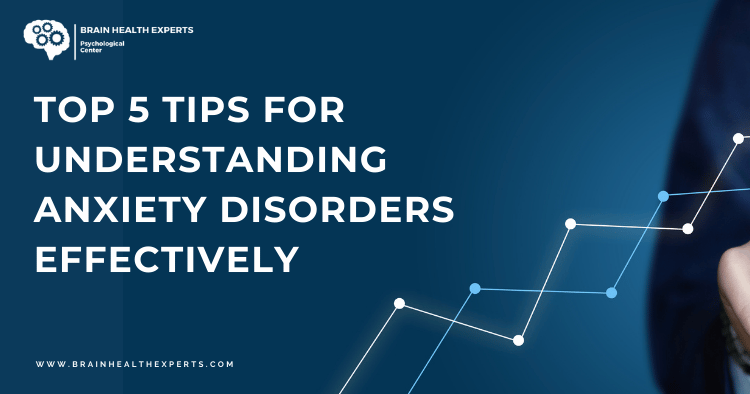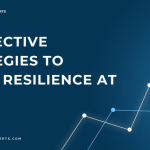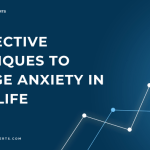Table of Contents
- What Are Anxiety Disorders?
- Common Types of Anxiety Disorders
- Recognizing Symptoms of Anxiety Disorders
- The Importance of Seeking Professional Help
- Coping Strategies for Managing Anxiety
What Are Anxiety Disorders?
Anxiety disorders are mental health conditions characterized by excessive fear, worry, or apprehension. Unlike ordinary stress or anxiety that everyone experiences, anxiety disorders can interfere significantly with daily activities and quality of life. According to the National Institute of Mental Health (NIMH), approximately 31.1% of adults in the U.S. experience an anxiety disorder at some point in their lives.
Understanding anxiety disorders is key to supporting yourself or loved ones who may be struggling.
Anxiety disorders can manifest in various forms, including generalized anxiety disorder (GAD), panic disorder, social anxiety disorder, and specific phobias. For more insights into how positive thinking can transform your life and help manage anxiety, check out 10 Ways Positive Thinking Transforms Your Daily Life.
Common Types of Anxiety Disorders
There are several types of anxiety disorders, each with its own nuances and triggers. Here’s a quick reference table to help you understand:
| Type of Disorder | Description |
|---|---|
| Generalized Anxiety Disorder (GAD) | Persistent and excessive worry about various aspects of life. |
| Panic Disorder | Recurring panic attacks characterized by sudden feelings of terror or impending doom. |
| Social Anxiety Disorder | Intense fear of social situations, leading to avoidance and significant distress. |
| Specific Phobias | Intense fear of specific objects or situations, such as heights or spiders. |
| Obsessive-Compulsive Disorder (OCD) | Recurrent, unwanted thoughts (obsessions) and repetitive behaviors (compulsions). |
Familiarizing yourself with the different types of anxiety disorders can aid in better understanding and empathy.
For additional information on how positive thinking can help reduce stress, consider reading 10 Positive Thinking Techniques to Reduce Stress.
Recognizing Symptoms of Anxiety Disorders
Recognizing the symptoms of anxiety disorders is vital for early intervention and treatment. While symptoms can vary depending on the specific anxiety disorder, some common signs include:
- Physical Symptoms: Increased heart rate, sweating, trembling, fatigue, and insomnia.
- Emotional Symptoms: Constant worry, irritability, feelings of dread, and difficulty concentrating.
- Behavioral Symptoms: Avoidance of anxiety-provoking situations, social withdrawal, and compulsive behaviors.
Early recognition of symptoms can lead to timely support and intervention, which is crucial for recovery.
If you or someone you know is experiencing these symptoms, it’s important to acknowledge them and consider the next steps. For a more comprehensive list of symptoms, check out the resources provided by the Mayo Clinic.
The Importance of Seeking Professional Help
Seeking professional help is crucial for anyone struggling with anxiety disorders. Mental health professionals can provide accurate diagnoses, personalized treatment plans, and support throughout the healing process. Here are a few benefits of professional help:
- Accurate Diagnosis: A trained professional can distinguish between different anxiety disorders and co-occurring conditions, ensuring you receive the correct treatment.
- Therapeutic Techniques: Cognitive-behavioral therapy (CBT), exposure therapy, and medication management are effective treatments that professionals can offer. For a deeper dive into CBT, refer to 10 Effective CBT Techniques to Overcome Anxiety Today.
- Support Systems: Therapy can also provide a safe space for individuals to discuss their feelings, fears, and experiences, which is vital for recovery.
Remember, seeking help is a sign of strength, not weakness.
If you’re considering seeking help, platforms like Psychology Today can help you find a therapist near you.
Coping Strategies for Managing Anxiety
While professional help is essential, there are also self-care strategies that can help manage anxiety effectively. Here are five coping strategies to consider:
- Mindfulness and Meditation: Practicing mindfulness can help ground you in the present moment and reduce feelings of anxiety. Apps like Headspace or Calm offer guided meditations tailored for anxiety relief. For more about mindfulness practices, check 10 Essential Mindfulness Practices for Beginners.
- Physical Activity: Regular exercise releases endorphins, which act as natural stress relievers. Aim for at least 30 minutes of moderate exercise most days of the week.
- Healthy Lifestyle Choices: Eating a balanced diet, staying hydrated, and limiting caffeine and alcohol can have a positive impact on your mental well-being.
- Connect with Others: Sharing your feelings with friends or family can alleviate feelings of isolation. Consider joining support groups where you can connect with others experiencing similar challenges. For more on how positive thinking can enhance relationships, see 10 Ways Positive Thinking Transforms Your Relationships.
- Journaling: Writing about your thoughts and feelings can provide clarity and serve as an emotional release. It can help you identify triggers and patterns in your anxiety.
Exercise is not just good for your body; it’s a powerful tool for mental health as well.
Journaling can be a therapeutic outlet, helping you process and understand your feelings.
For more in-depth coping strategies, visit the Anxiety and Depression Association of America (ADAA).
FAQs
Q: Can anxiety disorders be cured?
A: While anxiety disorders may not have a “cure,” they can be effectively managed through therapy, medication, and lifestyle changes.
Q: How can I support a loved one with an anxiety disorder?
A: Offer your understanding, listen without judgment, encourage them to seek professional help, and be patient as they navigate their treatment.
Q: Is medication always necessary for treating anxiety disorders?
A: Not always. Many individuals find relief through therapy alone. However, medication can be beneficial for some people, especially in conjunction with therapy.
Q: Can children have anxiety disorders?
A: Yes, children can experience anxiety disorders. Symptoms may manifest differently, often through behavioral changes or school-related issues. For more on fostering positive thinking in children, see 10 Fun Ways to Foster Positive Thinking in Children.
By understanding anxiety disorders and the various ways to manage them, you are taking a significant step toward enhancing mental well-being—either for yourself or someone you care about.





